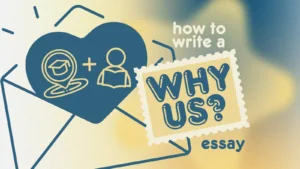You’ve finally finished your essay. The thoughts are down, the words are flowing, and you’re tempted to hit that “submit” button. But wait! There’s one important step that you may have just skipped (or rushed through): revision. We get it—by the time you’ve written your essay, the last thing you want to do is go back and read through it again. You’re not alone! A lot of students think that once the words are on paper, the job is done. But skipping the revision process is where many essays fall short. So, let’s look a bit into how revising your essay can make all the difference and whether this process can at all be less painful for you.

✅ AI Essay Writer ✅ AI Detector ✅ Plagchecker ✅ Paraphraser
✅ Summarizer ✅ Citation Generator
What is Revising?
Before we get into how to revise, let’s start with a simple question: what exactly is revising? In writing, revision means taking another look at your work and improving it. It’s different from editing because revising isn’t just about fixing typos or grammatical errors (though that’s part of it). During the revision process, you need to focus on checking if your ideas make sense, if your arguments are clear, and whether everything flows smoothly from one point to the next.

Think of revision as giving your essay a makeover. It includes:
- rearranging paragraphs
- rewriting awkward sentences
- and making sure your thesis still holds up.
If something doesn’t fit or feels off, you have the freedom to improve or remove it. To put it simply, revising is your chance to go from “meh” to “wow” in your writing.
Major Revision Strategies You Can Follow
Now that we’ve covered the revising definition in writing, let’s get to the fun part—actually revising. Here are some effective strategies that will help you break down the process and make it more manageable.
- Take a Break Before Revising
One of the best things you can do for your writing is to step away from it. After finishing your first draft, take a break—go for a walk, grab a snack, or sleep on it. Coming back to your essay with fresh eyes will make a world of difference. It’ll help you spot issues you missed the first time because you’ll be looking at your writing from a new perspective.
- Read Your Essay Aloud
It might feel a little awkward, but reading your essay out loud can help. When you hear the words instead of just seeing them, you’ll notice awkward phrasing, repetitive and run-on sentences, or parts that just don’t make sense. If something sounds strange when you read it, that’s a sign it might need some improvement.
- Focus on the Big Picture First
Don’t get lost in the details just yet—start by looking at the overall structure. Does your essay follow a logical order? Is your thesis clear? Do your arguments support your main point? Make sure each paragraph has a purpose and that everything ties back to your main statement (which should be in the introduction paragraph). If something feels out of place, don’t be afraid to move it around or even cut it altogether. Sometimes less is more!
- Tighten Up Your Sentences
Now it’s time to zoom in on smaller parts of the text. Are there any sentences that feel overly complicated? Try simplifying them to make your writing more direct. For example, if you notice a lot of “very” or “really” in your writing, you can probably cut those out. Make sure every sentence is doing its job—communicating your ideas clearly and effectively.

- Get a Second Opinion
Sometimes, you’re just too close to your own work to see what needs fixing. This is where a friend, classmate, or even a tutor can help. Ask someone to read your essay and point out anything that’s confusing or doesn’t flow well. They’ll likely catch things you missed and give you a fresh perspective on your writing.
- Proofread (Finally!)
Once you’ve constructed a well-organized big picture and tightened up your sentences, it’s time to focus on the tiny (or not-so-tiny) details—spelling, grammar, punctuation, and formatting. Proofreading is the final step where you catch those sneaky typos and make sure your essay is clean and polished. You can use online tools like Textero and Grammarly, but it’s always good to give it one last read yourself.
Why Revising Is Important (For You)
Let’s be honest—revising can feel like a chore, especially when you’re eager to move on to the next assignment (or maybe just Netflix). But skipping the revision process is like baking a cake and forgetting the frosting. Sure, it’s technically done, but it’s not nearly as good as it could be.
It Improves Your Writing Skills
When you take the time to revise, you’re not just improving that one essay—you’re becoming a better writer overall. Revising teaches you to think critically about your work, spot weaknesses, and figure out how to fix them. Over time, this skill will carry over into future assignments, and you’ll start catching mistakes (and even avoiding them) even before you finish your first draft.
It Boosts Your Grades
Teachers and professors notice when you’ve put effort into your writing. A well-revised essay is clearer, more persuasive, and easier to read. It shows that you care about your work and are willing to put in the extra time to make it better. This can easily make the difference between an average grade and a stellar one.
It Builds Confidence
There’s nothing quite like the feeling of turning in an essay that you know is solid. Revising gives you the confidence that you’ve done everything you can to make your writing the best it can be. No more second-guessing yourself or wondering if you could have done better—you’ve got this!
FAQ
Follow us on Reddit for more insights and updates.





Comments (0)
Welcome to A*Help comments!
We’re all about debate and discussion at A*Help.
We value the diverse opinions of users, so you may find points of view that you don’t agree with. And that’s cool. However, there are certain things we’re not OK with: attempts to manipulate our data in any way, for example, or the posting of discriminative, offensive, hateful, or disparaging material.